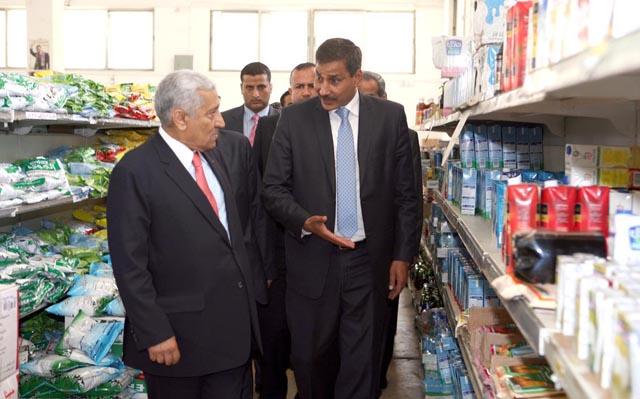You are here
Dealers urge gov’t to keep fuel prices stable during Ramadan to prevent food price hikes
By Omar Obeidat - Jun 21,2014 - Last updated at Jun 21,2014

AMMAN – Food merchants have called on the government to keep fuel prices unchanged as the monthly pricing update due next week would coincide with the beginning of Ramadan.
In remarks to The Jordan Times Thursday, traders, who said they pledged not to increase prices of food items in Ramadan when demand surges sharply, indicated that any increase on fuel prices would put additional costs on suppliers and would automatically be reflected on end consumers.
After removing fuel subsidies in November 2012, the government started to change prices of fuel products every month according to global oil prices, mainly Brent crude. Oil prices over the past few days hit a nine-month high due to tensions in Iraq.
Brent crude settled around $114 per barrel on Friday, up from its average price of $108 a barrel in May.
“I hope the government takes the initiative by keeping fuel prices unchanged,” said Issa Murad, president of the Amman Chamber of Commerce, adding that any increase would be reflected on consumers.
“We are aware that oil prices internationally are surging but the government should be able to bear increases in oil prices for one month,” Murad added, noting that merchants have pledged to keep food prices stable during the fasting month even if commodity prices go up internationally.
He expected that prices of main commodities in the domestic market such as vegetables, rice and imported meat would either remain stable or even go down as Ramadan would coincide with the peak production of agricultural produce and that importers have signed contracts with Egyptian suppliers for “large quantities” of rice.
Murad said strategic storage of food items would be enough to cover the Kingdom’s needs for more than six months.
The Foodstuff Traders Association Director Zuhair Harb warned that increases in fuel prices on the local market would bring up the costs of transport, prompting merchants to raise the prices of goods to absorb additional operational costs.
Minister of Industry, Trade and Supply Hatem Halawani commented that it would be too early for the government to consider such an issue before the picture is complete by the end of the month.
However, Halawani said that the government’s priority is to ensure that prices of food items remain stable during Ramadan.
Related Articles
The government on Monday raised the prices of main oil derivatives by nearly 1 per cent, with an official saying the increase was meant to be slight because of Ramadan.
All necessary procedures to ensure the stability of prices and availability of food items during the fasting month of Ramadan have been taken, senior officials said on Wednesday.
Prime Minister Abdullah Ensour on Thursday called for intensifying the monitoring of markets and shops ahead of and during the fasting month of Ramadan.












